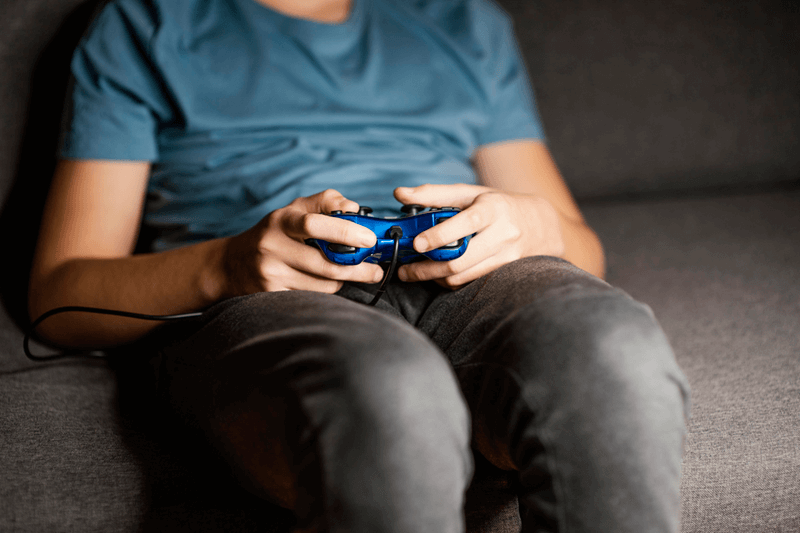
Gaming addiction, also known as video game addiction or internet gaming disorder, is a compulsive pattern of gaming behavior that interferes with an individual’s daily life and has negative consequences on their physical, mental, and social well-being. It is one of the various types of addiction discussed on the Addiction main category page, along with other addictions like Alcohol Addiction, Drugs Addiction, Food Addiction, Gambling Addiction, Shopping Addiction, and Social Media Addiction.
In this article, we will discuss the signs and symptoms of gaming addiction, its causes, consequences, treatment options, and prevention strategies.
Some common signs and symptoms of gaming addiction include:
Gaming addiction can arise from a combination of factors, including genetic, psychological, and environmental influences. The American Psychiatric Association (APA) acknowledges gaming addiction as a potential mental health disorder, emphasizing the need for further research and understanding.
Individuals with underlying mental health issues, such as depression, anxiety, or ADHD, may be more susceptible to gaming addiction. They may use gaming as a coping mechanism or to escape from their problems.
Gaming can stimulate the release of dopamine, a neurotransmitter associated with pleasure and reward. This can lead to a cycle of addiction, where individuals continue gaming to experience the dopamine rush.
Online gaming can provide a sense of connection and belonging, especially for individuals who feel isolated or have difficulty forming relationships in the real world. This can contribute to the development of gaming addiction.
Gaming dependence can have several negative consequences on an individual’s life, including:
Excessive gaming can lead to sedentary behavior, poor posture, and repetitive strain injuries, such as carpal tunnel syndrome or tendonitis. Additionally, it can contribute to sleep disturbances, obesity, and other health issues associated with a sedentary lifestyle.
gaming dependence can exacerbate existing mental health conditions or contribute to the development of new ones, such as depression, anxiety, and low self-esteem. It may also lead to social isolation, as individuals may prioritize gaming over other aspects of their lives.
Gaming addiction can strain relationships with family and friends, as well as impact academic and career growth. It can also lead to financial difficulties, as individuals may spend large amounts of money on gaming equipment, in-game purchases, or subscription fees.
Gaming addiction can have significant consequences on an individual’s physical, mental, and social health. The World Health Organization (WHO) has classified gaming disorder as a mental health condition, emphasizing the importance of recognizing and addressing the issue.
Various treatment options are available for individuals struggling with gaming dependence, including:
Cognitive-behavioral therapy (CBT), motivational interviewing, and family therapy can help individuals change their thoughts and behaviors related to gaming addiction. These therapeutic approaches can also be beneficial for those struggling with other types of addiction, such as Food Addiction or Gambling Addiction.
Support groups like On-Line Gamers Anonymous (OLGA) and 12-step programs can provide peer support, encouragement, and a structured approach to recovery, helping individuals maintain a balanced gaming lifestyle.
In some cases, medication may be prescribed to address underlying mental health issues, such as depression or anxiety, that contribute to gaming addiction. It is essential to consult with a healthcare professional to determine the most appropriate treatment plan.
Prevention strategies for gaming dependence include:
In our gaming addiction category, we provide resources and support for those struggling with gaming dependence, as well as their loved ones. By raising awareness and promoting education about gaming addiction, we hope to help individuals and families affected by this issue to lead happier, healthier lives.
Gaming addiction is a complex issue that can have significant consequences on an individual’s physical, mental, and social health. By understanding the causes, signs, and symptoms of gaming dependence, we can better support those affected and work towards prevention and effective treatment options. Recovery is possible with the right support, resources, and commitment to change.
For more information on addiction and its various forms, visit the Addiction main category page, where you can find articles on other addiction types, such as Alcohol Addiction, Drugs Addiction, Food Addiction, Gambling Addiction, Shopping Addiction, and Social Media Addiction.
By raising awareness about the various types of addiction and providing resources for those affected, we aim to create a supportive community and contribute to a better understanding of addiction as a whole. Remember, reaching out for help is the first step toward recovery and healing. Don’t hesitate to seek professional assistance if you or a loved one is struggling with addiction.
